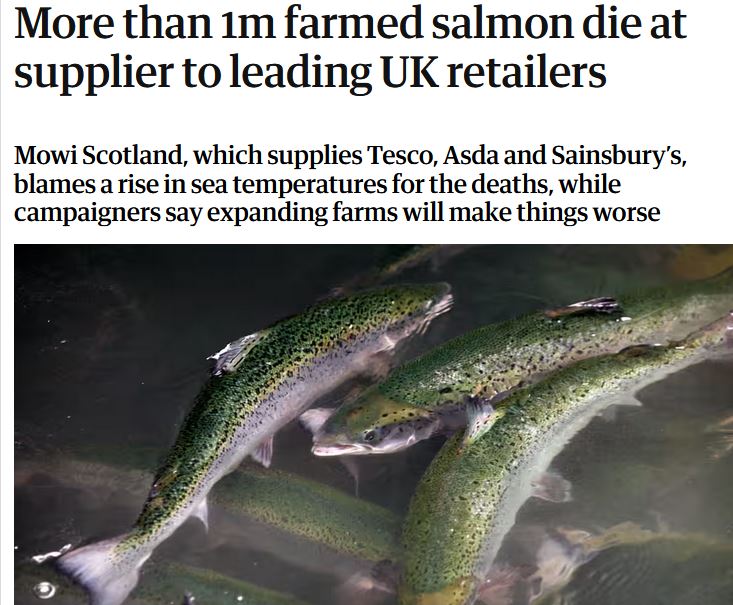 Það er þessi grimmdarlega hlið sjókvíaeldis á laxi sem mun fella iðnaðinn. Þegar eru komnar slíkar sprungur í undirstöður hans að það verður ekki aftur snúið.
Það er þessi grimmdarlega hlið sjókvíaeldis á laxi sem mun fella iðnaðinn. Þegar eru komnar slíkar sprungur í undirstöður hans að það verður ekki aftur snúið.
Viðskiptamódelið í þessum geira hvílir beinlínis á gríðarlegum dauða eldisdýranna. Fyrirtækin vita hvernig þau geta stöðvað hann að langstærstu leyti en kjósa að aðhafast ekki.
Undanfarin tvö ár hafa um 40% eldislaxanna drepist sem sjókvíaeldisfyrirtækin hafa sett í kvíar við Ísland.
Í frétt The Guardian segir meðal annars:
More than a million dead fish, the biggest mass die-off of farmed salmon in Scotland in a decade, have been recorded at a farm belonging to the UK’s largest supplier.
The deaths at two adjacent Mowi Scotland sites in Loch Seaforth on the Outer Hebrides – licensed as one farm by the Scottish government – rose to just over a million during the year-and-a-half production cycle that it usually takes to raise a salmon in seawater, and which in this case began in spring 2023. Mowi supplies salmon to retailers including Sainsbury’s, Tesco, Asda and Ocado. Many of its farms, including those in the Hebrides, are certified under the RSPCA Assured label, which guarantees higher animal welfare standards.
…
At the end of last year, when mortality in Scotland’s farms hit record levels, Chris Packham called for a halt to the expansion of the Scottish salmon farming industry. Despite this, salmon remains the UK’s second most popular fish (after tuna), with sales in the year to June worth £1.3bn.
“This is the first time since 2014 [when regular reporting began] that more than a million farmed salmon deaths have been reported at a single farm site in one production cycle,” said Aitchison. “We expect to see more salmon deaths in Scotland because farms are becoming even larger.”
…
Ben Hadfield, Mowi Scotland’s chief operating officer, rejected any suggestions mass mortality is a sign of poor welfare and said the deaths were due to an unprecedented rise in sea temperatures which resulted in jellyfish blooms, a problem blighting Scottish production. Jellyfish stings to salmons’ eyes, skin and gills risk health problems and death. “[Any] suggestion that this is caused by bad farming, fixation with profits [or] overstocking is … very false and misleading,” Hadfield said.
…
Much of the salmon sold in UK supermarkets comes with the RSPCA Assured label. Last month, the RSPCA suspended three Scottish salmon farming sites from the scheme after the release of covert video footage by an animal rights group that showed alleged breaches of welfare regulations.An RSPCA Assured spokesperson said it had removed Fiunary salmon farm, owned by Scottish Sea Farms, from the scheme, while Mowi’s Loch Alsh and Bakkafrost’s Ardcastle were sanctioned and are receiving extra, unannounced inspections. After this, Scottish Sea Farms and Bakkafrost told the news website West Coast Today they had taken immediate remedial action at the affected sites, while Mowi said it was carrying out its own internal investigation and that the Loch Alsh site was not currently supplying any of its customers.
